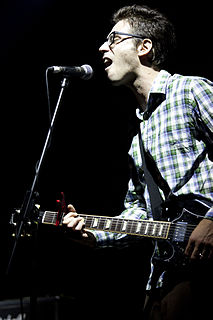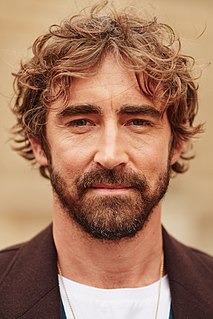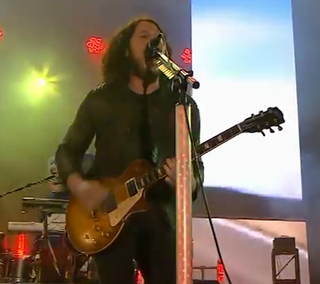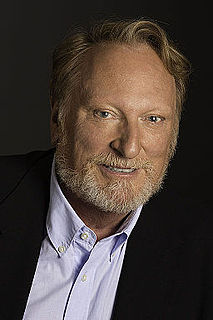A Quote by Matt Taibbi
You know what an effective deterrent to crime is? Jail! And do you know what kind of criminal penalty actually makes people think twice about committing crimes the next time? The kind that actually comes out of some individual's pocket, not fines that come out of the corporate kitty.
Related Quotes
They have to earn our vote. Neither Hillary [Clinton] or Donald [Trump] have earned our votes, yet the media is kind of closing ranks around them to try to prevent before people find out that there is actually - you know, that we actually have other choices. We are not limited to two corporate candidates.
My dream right now is - and I don't know how to do it, and I don't know if it will work exactly - but just this sort of vague aspiration to start some kind of website where people send in their stories or poems, and me or perhaps some other people turn that into music. And then by the end of the year we make a record and actually put it out. Like a band, but the band is actually a combination of the musician and the fan. I think that's a very 21st-century way of doing it.
Phonetics, you know speech, all this kind of stuff, phonograph, simple, but when you unpack the meaning it actually kind of expands out and that is what I was going for in my book "Sound Unbound" was to try and get people to figure out how do we unpack some of the meanings that go into these kinds of sonically coded landscapes.
I mean, in 'Big' and 'Pleasantville,' it's a journey that the characters go on where I think they come to kind of meet themselves at the end and who they actually are and give full voice to who they actually are. And that, you know, obviously fascinates me for some reason. Maybe I didn't adequately grow up.
There were actually times where I thought, 'Do people even remember us? Are people gonna be interested in hearing what we put out next?'And, you know, there were times I felt like, 'Are there going to be people out there waiting for this record?'. So we kind of live in a bubble, in a sense. We're very closed off to that whole world of thinking about those kinds of things.
So when we come across somebody who does understand this and makes an effort to try and explain it to us, some people freak out and turn that person into either an object of worship or, some people freak out and want to kill that person. I think it's because they know what's true but they don't want to know, they don't want to face up to what that actually means. So they're going to kill the messenger and hope that by doing so they'll destroy the message so they can go back to living their ordinary life again.
The cliché of that sort of wasted, renegade, drugged-out musician of the '70s is kind of dead and gone now. And I suppose that a lot of people still keep relying on that, or some kind of image to perpetuate something that they think they're supposed to sound like. But that kind of takes you away from real inspiration and, you know, real artistic discovery of the individual.
When we think of a criminal, we imagine someone with criminal motives. And when we look at Eichmann, he doesn't actually have any criminal motives. Not what is usually understood by "criminal motives." He wanted to go along with the rest. He wanted to say "we," and going-along-with-the-rest and wanting-to-say-we like this were quite enough to make the greatest of all crimes possible. The Hitlers, after all, really aren't the ones who are typical in this kind of situation--they'd be powerless without the support of others.
There’s a good kind of crazy, Kaylee,” he insisted softly, reaching out to wrap his warm hand around mine. “It’s the kind that makes you think about things that make your head hurt, because not thinking about them is the coward’s way out. The kind that makes you touch people who bruise your soul, just because they need to be touched. This is the kind of crazy that lets you stare out into the darkness and rage at eternity, while it stares back at you, ready to swallow you whole.
When I go to see people, I always kind of hope they are going to play some kind of songs I know. So you've got to know your audience. It's kind of something that is a blessing and a curse in a way. You're obligated to play some of that stuff that people know, but I don't think that's all you have to do.



































